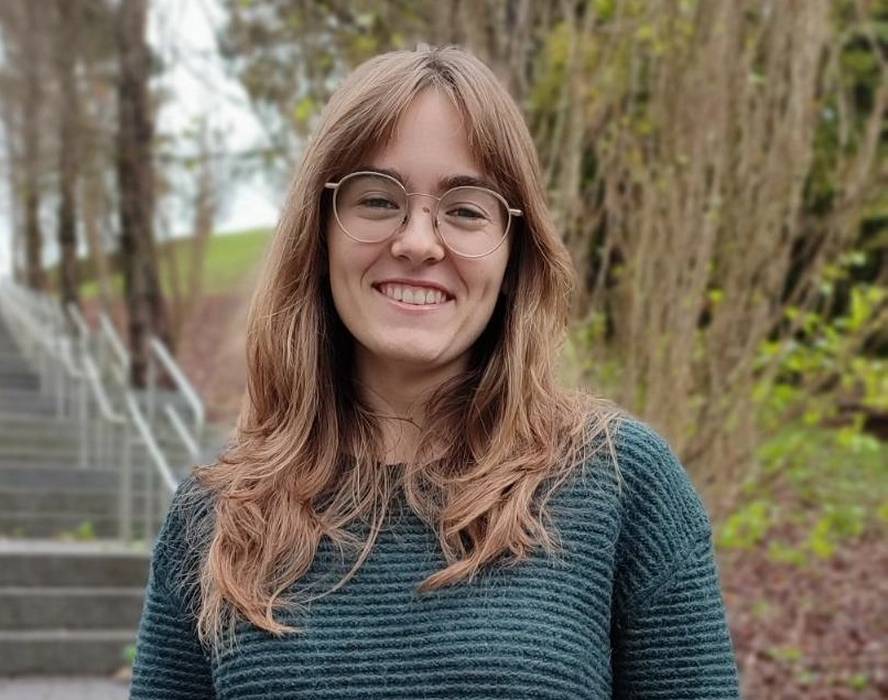"To understand our impact on the environment and what the environment has on us"
Jone Iraeta Orbegozo has acknowledged from his first word that people look at him with a strange face when he claims to be an environmental psychologist. It has therefore first clarified what the role of environmental psychologists is: “We analyze people’s relationship with their physical environment.” It emphasizes its interdisciplinary character and its contribution to the understanding of our impact on the environment and its influence on our thoughts, feelings and conducts. “The welfare of society is sought and this is not possible without taking into account what surrounds us,” says Iraeta.
Access to environmental psychology is part of the house, its parents are biologists. “When it came time to choose what to study it was hard because I had a thousand interests. But I've always thought that psychology is quite interdisciplinary, and so I chose it at the end: I couldn't decide science or literature because I like everything and psychology internalizes both. I always had that desire to study biology. But psychology met my expectations," explains Iraeta.
He thought about doing clinical psychology, but in the third year he went to Chile and says that then he took the path a little alternative. "The University of Chile works a lot in social psychology, especially community psychology. And I really liked it. Casually, while traveling, I met an environmental psychologist. Until then, I knew nothing about this. He told me about his projects and then I saw that the areas that interest me so much are not so far away. The climate is working on emergency adaptation processes, with communities, and also on energy issues in Germany.”
After a while to think, she started looking for a master's degree. In Europe, environmental psychology is only present in the Netherlands, where it is very difficult to enter. But in Seville he found another, interdisciplinary, and he decided to do so. The master works the social sciences applied to the environment and, according to Iraeta, is truly interdisciplinary: "Here come together those who come from the environment, such as biology, engineering, etc., and those who come from anthropology and sociology. Well, from psychology, I was the only one. But one of the most beautiful things this master has is that he brings people from different backgrounds together.”
From Colombia to here and willing to go anywhere
In the master's program he realized that was his way. Next, thanks to the Global Training scholarship has spent 8 months in Colombia in a social consultancy. He says that in Colombia they have a much more transversal view of the work, “that is, the teams are always interdisciplinary and take into account the social dimension in environmental projects and vice versa. It has been a great opportunity to learn.”
The Iraeta projects have been coordinated. As an example, it mentions the issue of an emerging project, the financial transparency of extractive and renewable energy projects. He clarifies that all this is done together with people from the territories where the projects are located, seeing what data is more interesting for them, training them to know how to handle them, evaluating the availability of data, etc. The whole process is carried out through the participation of the different territorial groups.
Coming from Colombia, Iraeta, I think, is opening a door to work this way too here, and it will become more and more common. So far, for example, in climate-related studies, strong science was being researched, and now more and more social science is being done. "Other concepts such as climate justice or energy poverty have already been discussed."
However, he says that as this road is still in its beginnings, it is difficult to find work. "There are few job openings and receive those who have experience." Being young is therefore having a limit, but not being a woman. "So far I haven't felt gender discrimination, and then I don't think I'm going to have problems either because there are many women who work on these kinds of tasks and they're welcome."
At the moment you are looking in Euskal Herria, but if something goes further, you are open to anywhere: "There are interesting projects anywhere and it is very enriching not only professional, but also personally traveling abroad."







